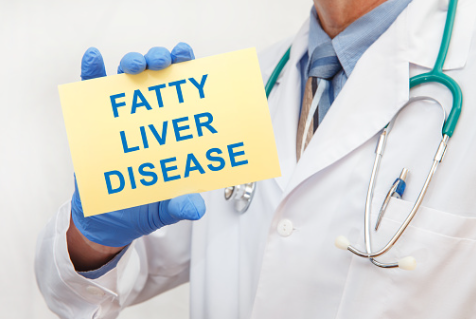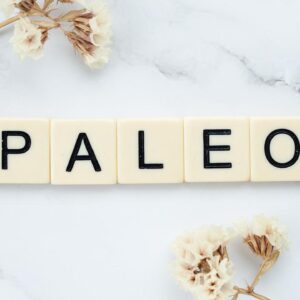How Mediterranean Diet Reduces Fatty Liver Disease?

Liver is not only an organ for detoxification, but also the largest gland in the body. With its help, the body can break down toxins. And other substances that are harmful to our bodies. So, if it becomes inflamed or damaged.
These substances will not be broken down properly and can build up in our body. This can lead to serious health consequences like liver disease.
Research has shown that the Mediterranean Diet can reduce fatty liver disease. The diet is high in antioxidants, low in saturated fats, salt and sugars.
This diet has been proven to lower the risk of heart disease, diabetes and obesity.
Furthermore, the researchers note that this diet would be one of the most important steps in preventing these 3 common diseases that are collectively responsible for many deaths every year.
The Mediterranean Diet is known for being healthy for many different reasons. One of the main reasons is because it has been shown to reduce fatty liver disease. They found that people who switch to this diet have a reduction of approximately 39% of their liver fat.
In addition, the Mediterranean diet can be found in Greece, Italy, and Spain. It is rich in vegetables, fruits, whole grains, beans and olive oil. It was noted that high consumption of this type of food provided a significant reduction in fatty liver disease.
What is Fatty Liver Disease and the Connection to the Mediterranean Diet?
The liver is an essential organ in the human body. It performs a number of functions including the production of bile and the metabolism and detoxification of chemicals and drugs. When fatty acids accumulate in the liver, it is called fatty liver disease or non-alcoholic fatty liver disease (NAFLD).

Furthermore, there are also other factors that can increase the risk for developing NAFLD such as obesity, type 2 diabetes, lipodystrophy syndrome, chronic kidney failure, and high caloric intake from fat over a long period of time.
Research has shown that following a Mediterranean diet helps with fatty liver. A study on the effects of the Mediterranean diet on non-alcoholic fatty liver disease found that participants who followed a Mediterranean eating pattern (increased consumption of fruits, vegetables, nuts and grains) had significantly lower levels of fat in their livers than those who did not.
Why the Mediterranean Diet Reduces Fatty Liver Disease?

The Greek island of Crete has the lowest prevalence of fatty liver disease in Europe. There is only one possible explanation behind this phenomenon, and that is the Mediterranean diet.
Moreover, the long-standing tradition of the Mediterranean diet, which includes primarily plant-based foods.
Therefore, olive oil as its main fat source, and limited meat intake for the population on Crete has created a community with low rates of obesity and diabetes.
In fact, the diet is beneficial for reducing the risk for fatty liver disease. It provides a way to decrease obesity and insulin resistance. Since it’s low in fat, has high fiber content, and is lower in sugar than the typical diet.
However, there’s a lot of conflicting information out there about the effectiveness of the Mediterranean diet.
Some sources point to research that does not prove it as a viable or healthy diet, while other sources claim that it can promote weight loss and reduce heart disease.
Mediterranean diet is rich in healthy fats and lean proteins as well as omega-3 fatty acids. The studies carried out by researchers have proven that this type of diet can help people to keep their weight under control. In addition, it can reduce the risk of cardiovascular disease, heart disease, diabetes and obesity.
Related: Diet to Lose Weight Fast
How the Mediterranean Diet Works?
Mediterranean diet consists mainly of fruits, vegetables, beans, nuts and seeds. You can also enjoy seafood in moderation.
This diet pays careful attention to balance. It’s NOT just what you eat but when you eat it. The Mediterranean diet divides food into three different categories: “faves” (healthy fats), “greens” (vegetables) and “once in a while” foods (dairy). The aim is to have roughly equal quantities from each category at every mealtime.

It seems that, for many years, people have been trying to figure out whether the Mediterranean Diet is really the best diet.
There are a number of factors that make this diet appealing to individuals, including its long history, scientific research supporting its health benefits, and delicious flavors.
The Mediterranean diet is known to be healthier than many other diets. This is due to its focus on healthy fats, plant-based foods, and low-to-moderate alcohol consumption.
It may also help with weight loss by reducing hunger. Now, researchers are studying the link between the diet and physical activity levels.
With more people becoming sedentary, it is necessary to uncover the relationship between health and diet.
Researchers are examining how exercise impacts the diet by examining whether physical activity can be used as a means of dietary control.
A study by researchers at the University of North Carolina Chapel Hill has found that physical activity can help control weight, but the study also showed that changes in diet are still necessary to see sustainable changes in weight.








